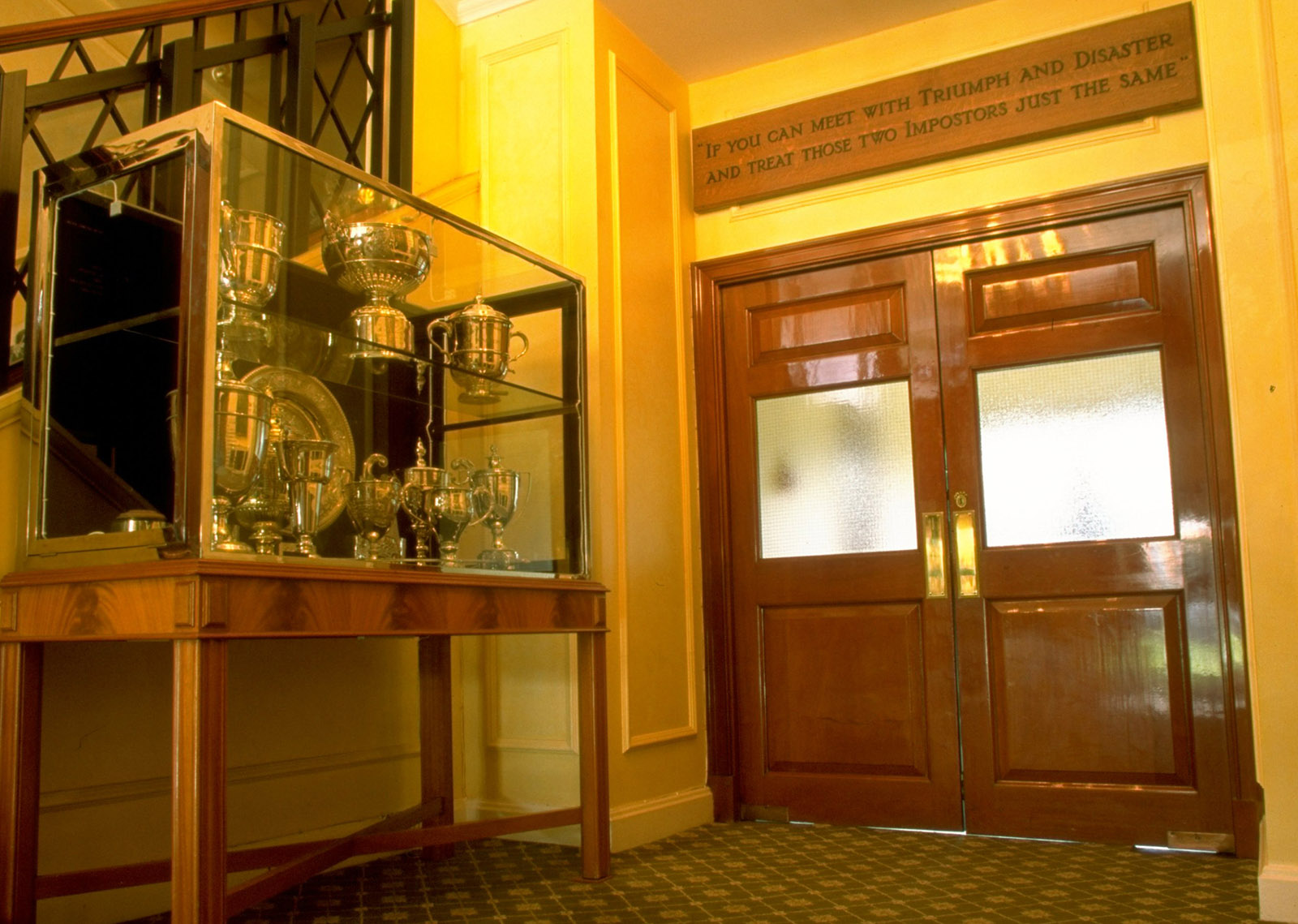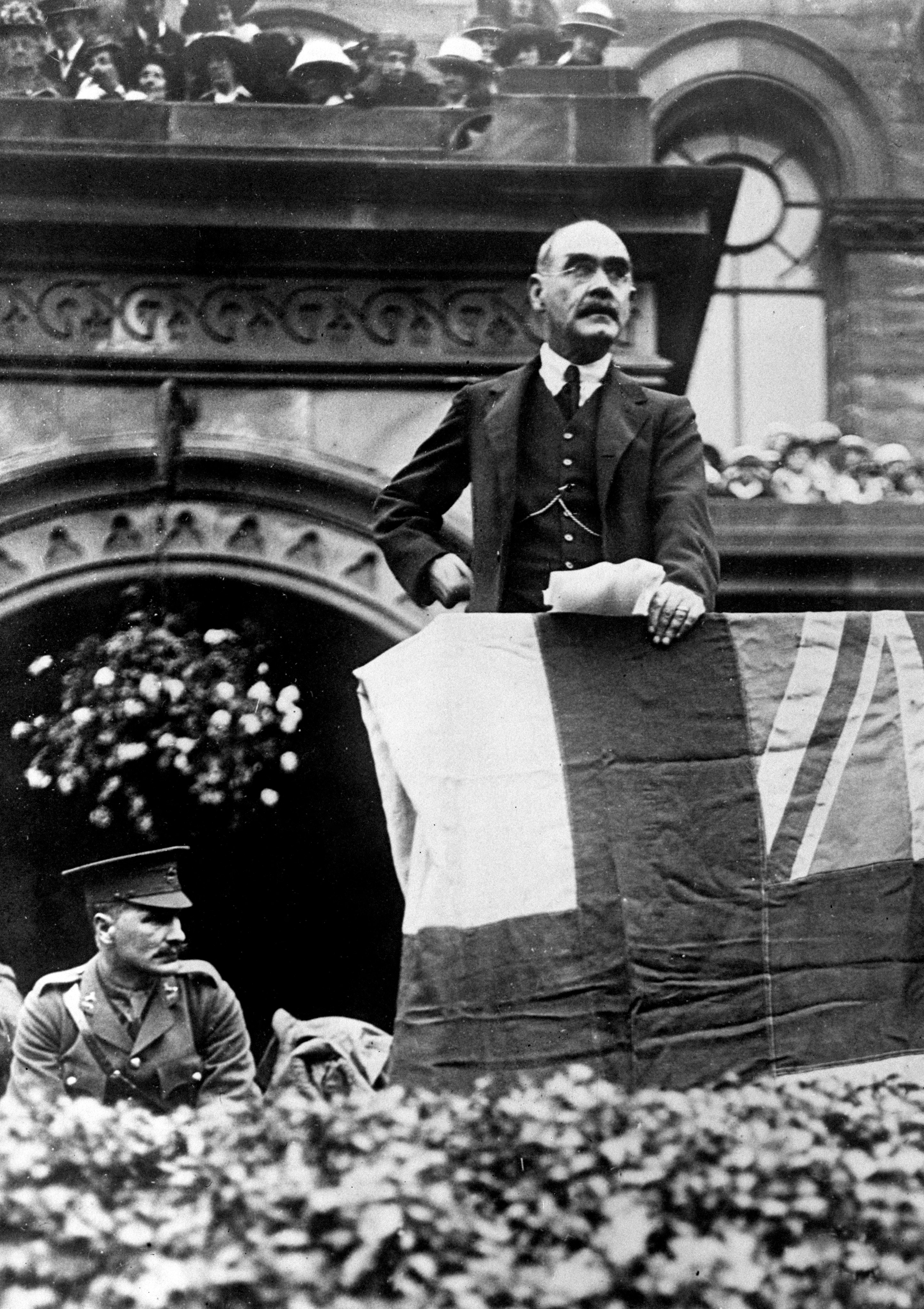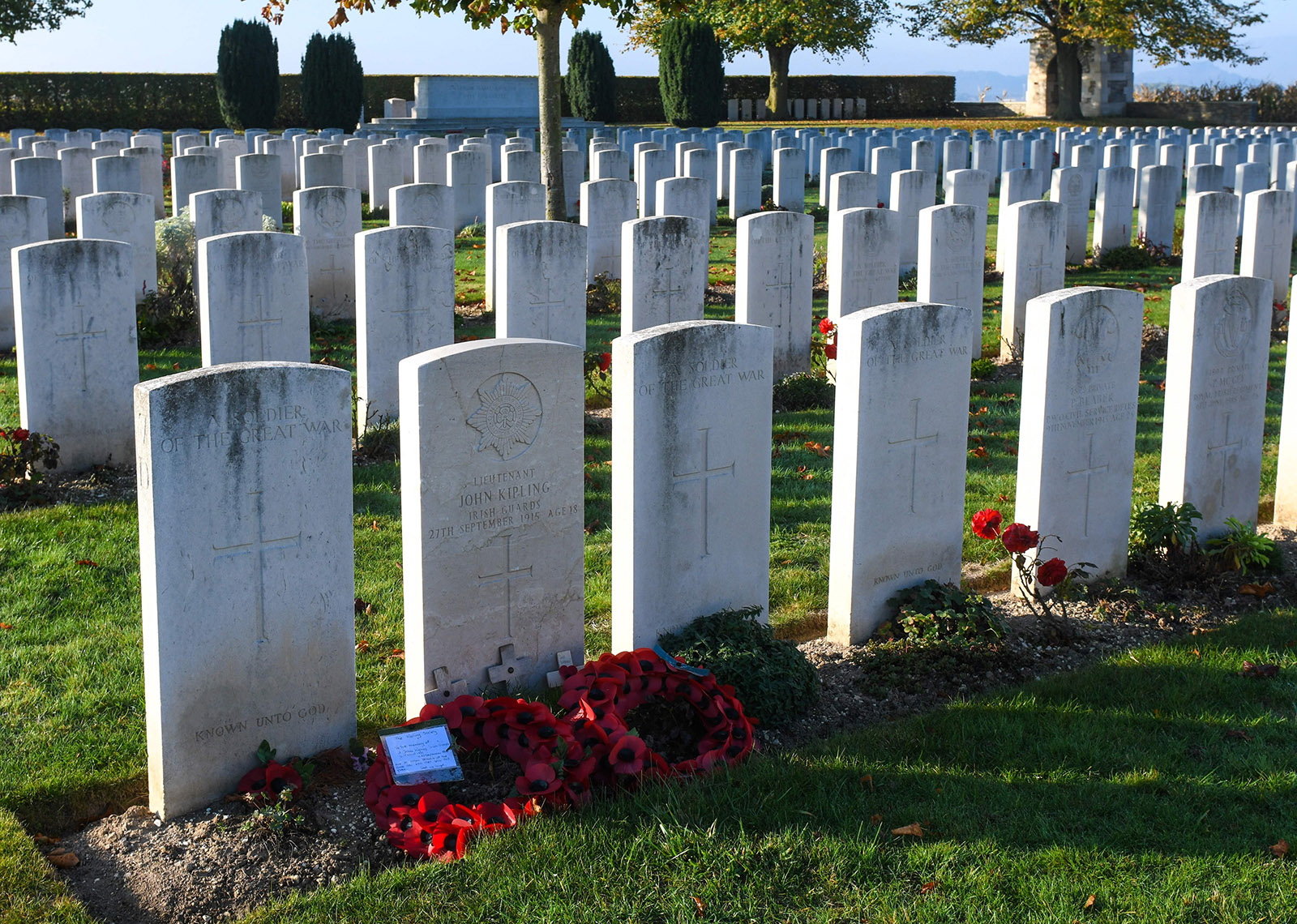For these next two weeks, the best tennis players in the world will enter Wimbledon’s fabled Center Court under two lines of poetry inscribed in capital letters above the tunnel that leads from the locker room:
IF YOU CAN MEET WITH TRIUMPH AND DISASTER
AND TREAT THOSE TWO IMPOSTORS JUST THE SAME
The passage is from Rudyard Kipling’s “If—,” once voted Britain’s most popular poem.
If you can keep your head when all about you
Are losing theirs and blaming it on you,
If you can trust yourself when all men doubt you,
But make allowance for their doubting too…
If you can do all these things, Kipling concludes, “Yours is the Earth and everything that’s in it, / And—which is more—you’ll be a Man, my son!” For a tennis player, the stoic lines swearing off triumph and disaster suggest that winning—even winning a major tournament like Wimbledon—must be kept in perspective. And a loss? Learn from it and move on.
Before the men’s championship match in 2008, the two finalists, Roger Federer and Rafael Nadal (still seeded second and third this year, more than a decade later), each recorded a recitation of a passage from the poem for a feature to be aired during rain delays. On International Women’s Day, in 2017, seven-time Wimbledon singles champion Serena Williams made a video in which she read the second half of the poem, substituting for Kipling’s final, patriarchal words an updated message for her daughter, “You will be a Woman, sister!”
It might surprise the poem’s many enthusiasts to learn that Kipling, who lived for several years in Vermont and built himself a tennis court there (reputedly the first in the state), originally used “If—” as the epilogue to a story about George Washington and his resistance to public opinion. Today, it is Kipling himself who often faces the public’s wrath.
Last year, indignant students at the University of Manchester painted over a mural displaying the verses of “If—” and replaced them with Maya Angelou’s “Still I Rise.” (Were they perhaps channeling Lindsay Anderson’s over-the-top If…, his 1968 film about an insurrection at an English public school?) Student outrage directed at Kipling is understandable. Didn’t Kipling write that notoriously racist screed “The White Man’s Burden,” an explicit invitation to the United States to assume Britain’s imperial mantle by occupying the Philippines? (George Orwell said it should have been called the “black man’s burden,” and James Baldwin agreed.) And wasn’t Kipling a close friend of that imperialist monster Cecil Rhodes, and a resolute supporter himself of the British colonial project in his native India? What writer could be more politically incorrect than Kipling, as a friend recently warned me when I told him I was completing a book on Kipling in America?
And yet, the Kipling case isn’t so simple. By a serendipity presumably unnoticed by the students, in Angelou’s I Know Why the Caged Bird Sings, young Maya “enjoyed and respected Kipling,” singling out “If—” for praise. In fact, “Still I Rise” appears to be modeled in part on Kipling’s don’t-back-down poem. “You may write me down in history / With your bitter, twisted lies,” Angelou writes defiantly, “But still, like dust, I’ll rise.” Perhaps Antonio Gramsci, the Italian Marxist thinker and translator of the poem, put the complex appeal of “If—” best. “Kipling’s morality is imperialist only to the extent that it is closely linked to a specific historical reality,” Gramsci wrote from one of Mussolini’s prisons, “but there are lessons in the poem for any social group struggling for political power.”
Kipling drew many of his own lessons from American writers. He traveled the length of the country, stopping in Elmira, New York, to pay tribute to his idol Mark Twain. He had a special fondness for Ralph Waldo Emerson, whose “Self-Reliance” was a major inspiration for “If—.” Kipling married an American woman, raised an American family, and promised to write The Great American Novel. He built a house high on a hillside outside Brattleboro, Vermont, with a view of Mt. Monadnock, and it was there that Kipling wrote The Jungle Book and his American novel Captains Courageous (set in part in Gloucester, Massachusetts). He befriended the American philosopher William James and explored the Washington Zoo with Theodore Roosevelt. In his Complete Verse, Kipling placed “If—” opposite his elegy for TR.
Kipling lived with his family in Vermont for four happy years before a quarrel with his brother-in-law over money, and a dispute between England and the United States regarding the border of Venezuela (President Cleveland wanted to shore up the Irish-American vote with some anti-British posturing), put an abrupt end to his American idyll. “There are only two places in the world where I want to live,” he lamented, “Bombay and Brattleboro. And I can’t live in either.”
Kipling’s varied writings have appealed, in turn, to American readers. Most of us think of Kipling as a writer for children, with the Just So Stories for bedtime and the tough-love Captains Courageous for teenage boys drawn to adventure at sea. Americans have always loved The Jungle Book, of course—especially in Walt Disney’s classic 1967 adaptation. But Kipling’s writings have also appealed to American readers at times of national confusion and loss of direction.
During the Vietnam War, as Philip Caputo notes in A Rumor of War (1977), ordinary soldiers found solace in Kipling’s “barrack-room ballads.” For Caputo, Kipling’s typical English soldier, Tommy Atkins—loyal to his mates in combat, humiliated on the home front—could have been a US Marine returning from an unpopular war. Among the higher reaches of the American officer class, a line from an obscure Kipling poem—“A Fool lies here who tried to hustle the East”—became a rallying cry for those opposed to the CIA coup that toppled the Diem regime in 1963 and intensified American involvement in the war.
After the war was lost, Kipling emerged again, in the manic voice of Dennis Hopper reciting “If—” in Apocalypse Now, as he led the Martin Sheen character to the deranged imperialist Colonel Kurtz, played by Marlon Brando. Another powerful warning against American imperial overreach was John Huston’s great film The Man Who Would Be King (1975), based on a Kipling story about two foolish soldier-adventurers, played by Sean Connery and Michael Caine, who tried to hustle the East and came to horrendous grief in Afghanistan.
But Kipling’s most insistent warning for our time may come from his moving cycle of poems “Epitaphs of the War,” published exactly one hundred years ago, after the shattering death of his son in World War I. One of his shortest poems, just two lines long, it imagines the young soldiers speaking from the grave. It begins, again, with the word “if.”
If any question why we died,
Tell them, because our fathers lied.






